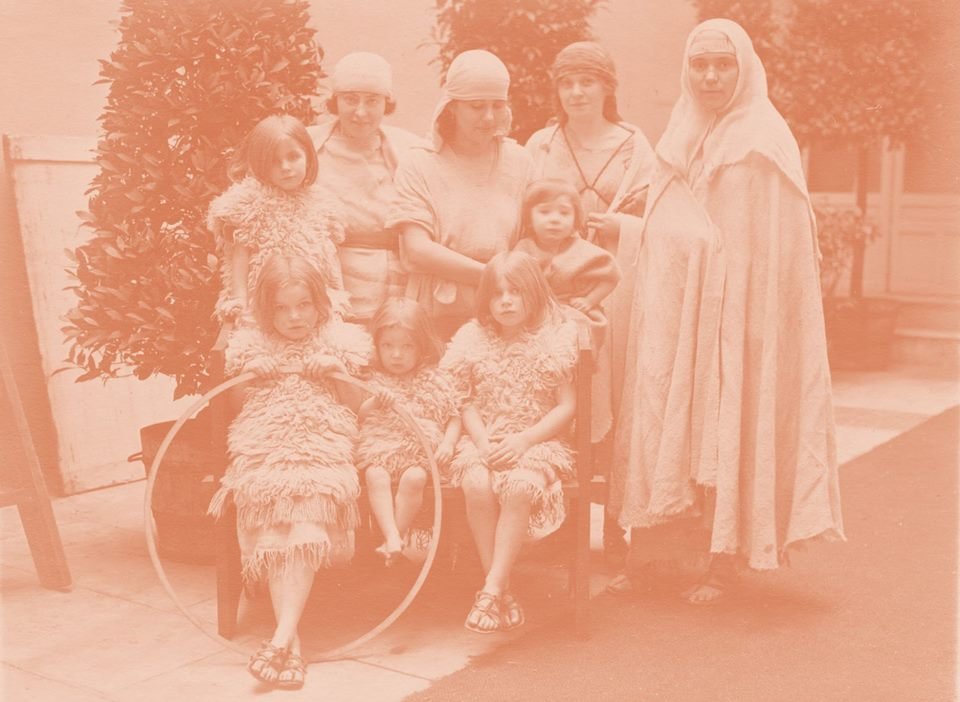
Aia Bertrand with students at the akademia, photographed by Raymond Duncan circa 1924. Courtesy: Duncan collection
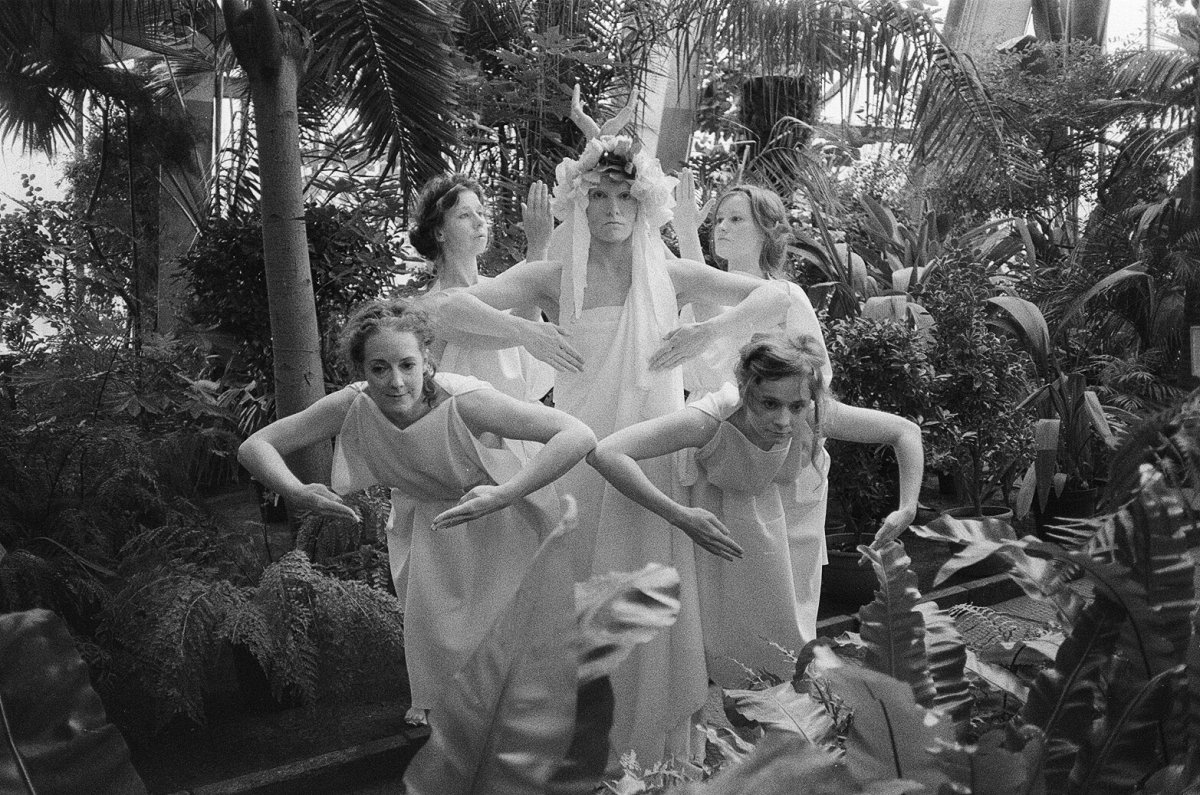
Ieva Balode Still from the video Equal Tense, 2017
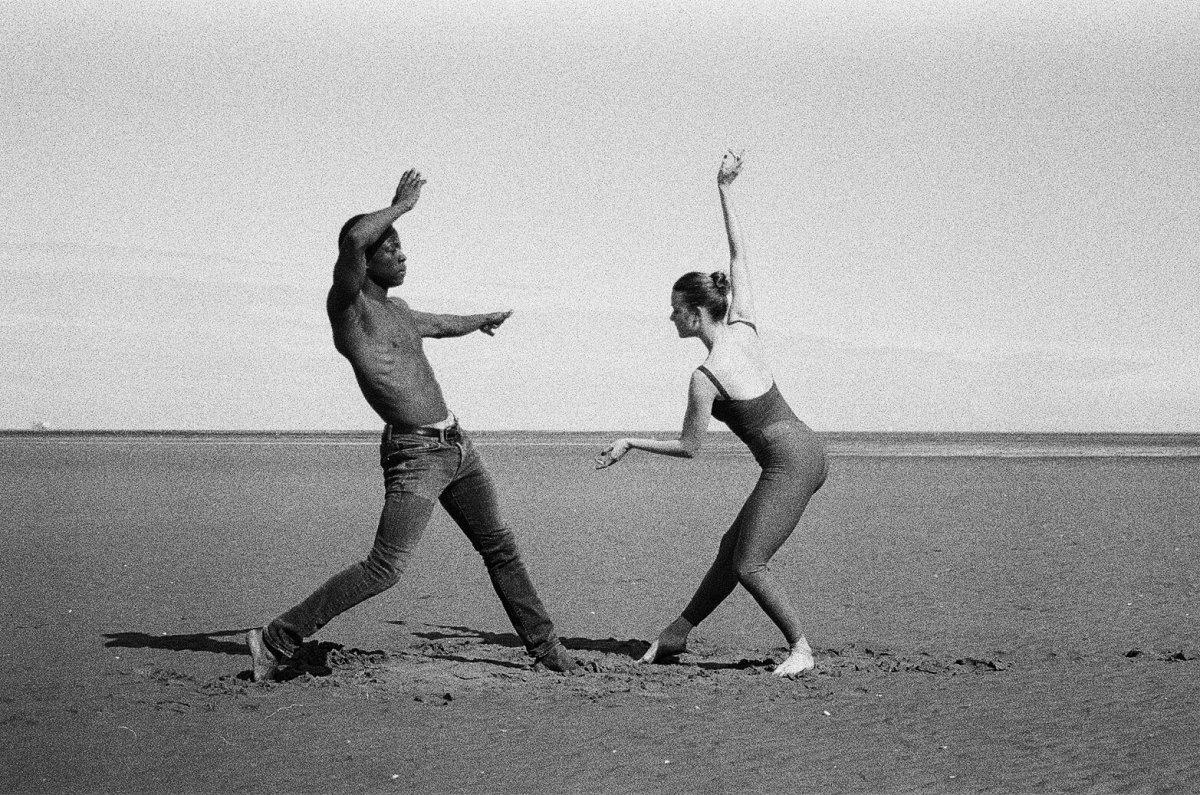
Ieva Balode Still from the video Equal Tense, 2017
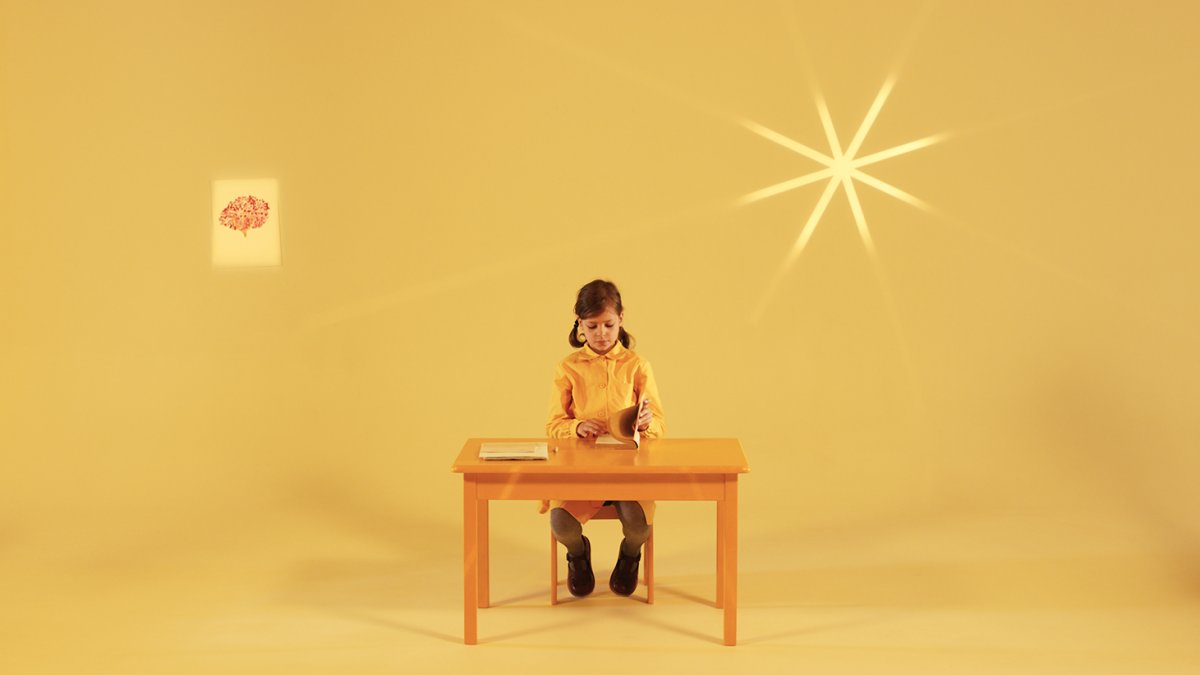
Ieva Epnere, Green school, 2017, HD video. Courtesy of the artist
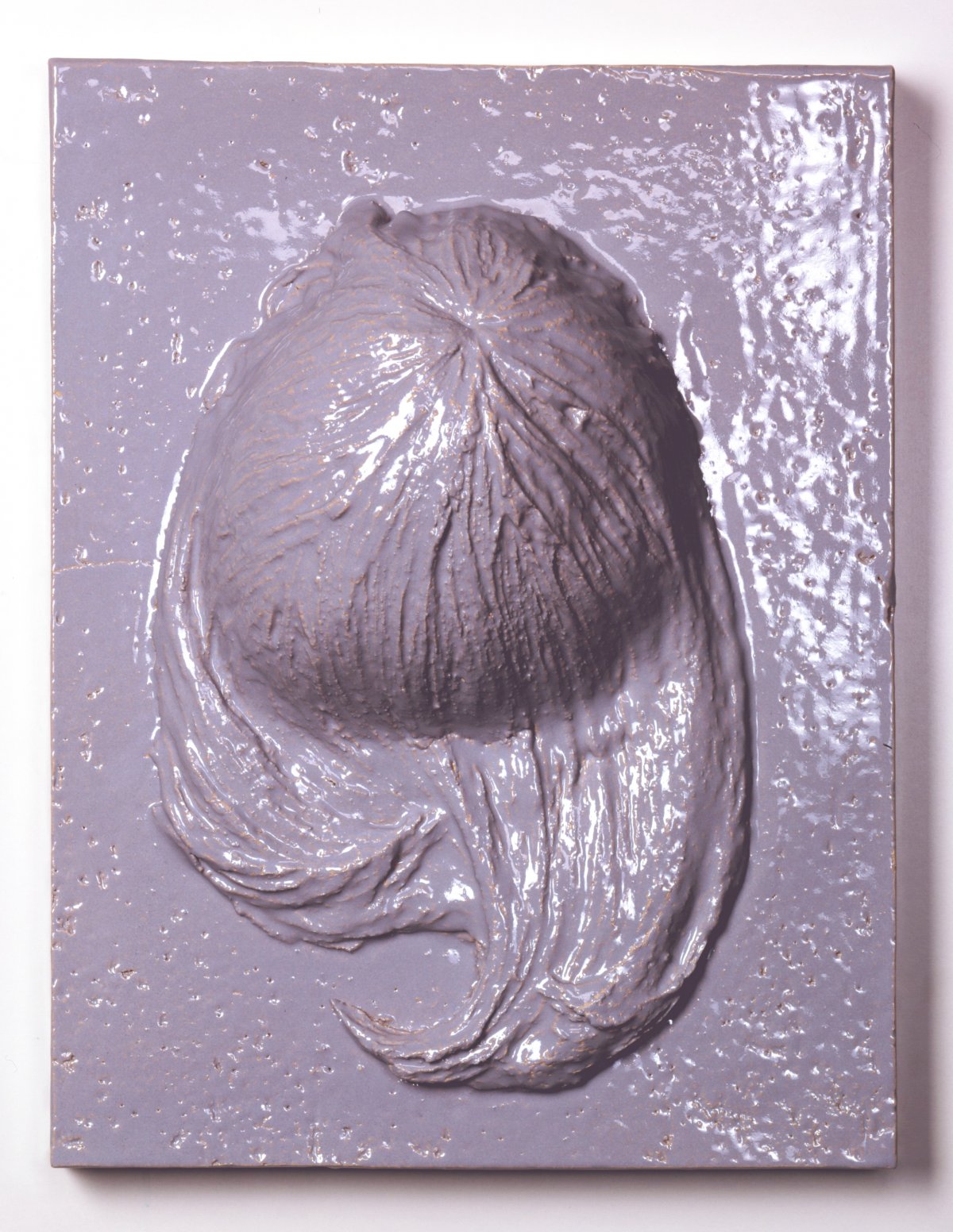
Daiga Grantina, Pipe-in dog and sun, (2017) Exhibition view of Biotopia at Kunsthalle Mainz in 2017. Courtesy Galerie Joseph Tang
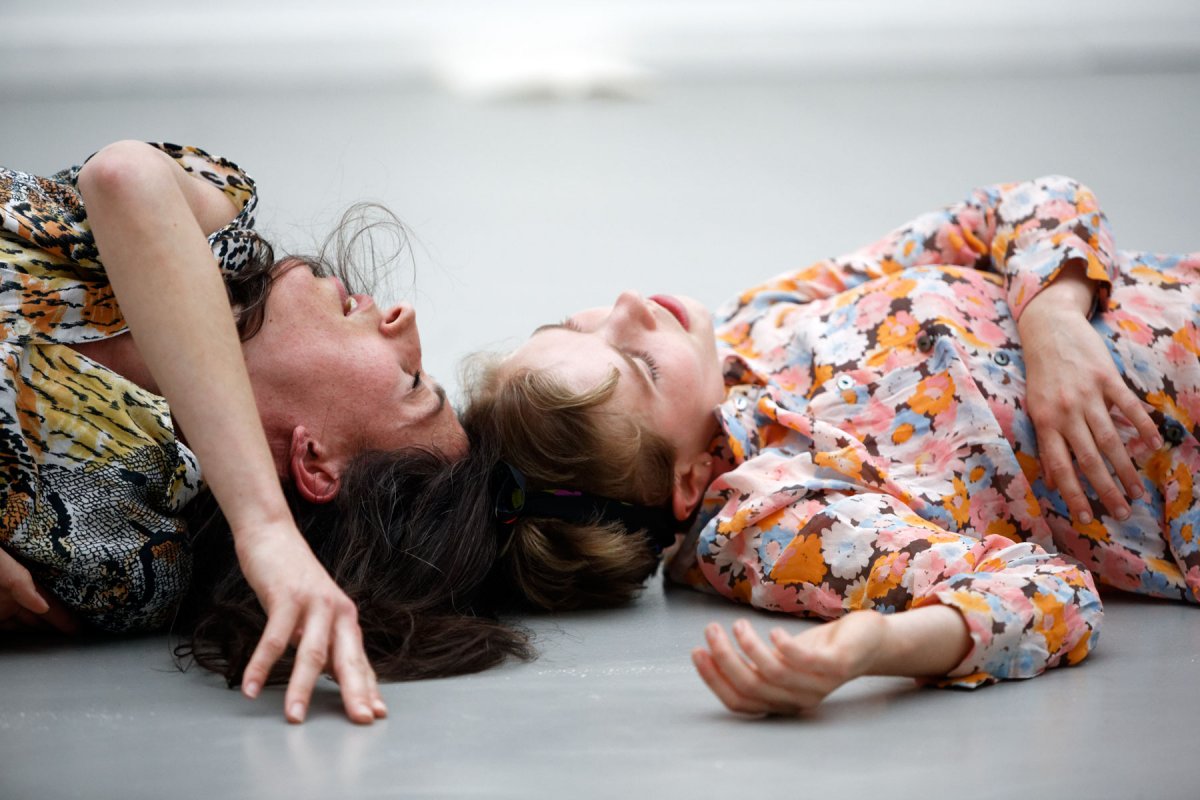
Mercedes Azpilicueta, Molecular Love, 2017
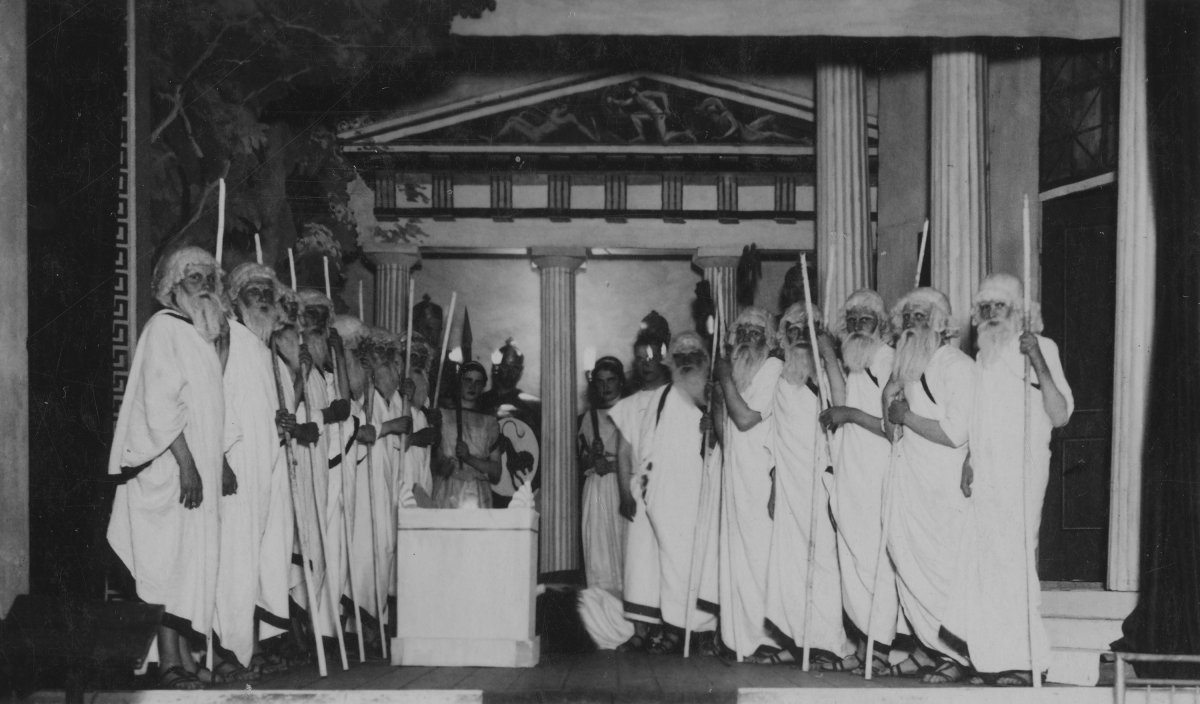
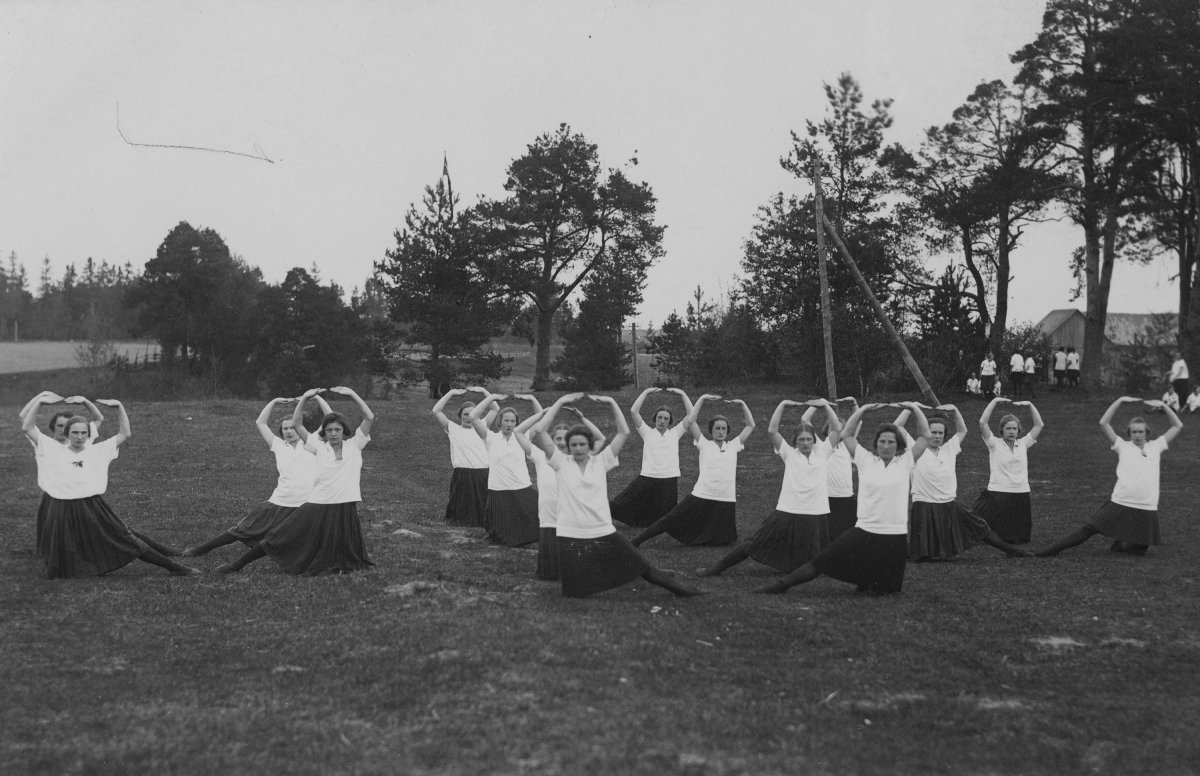
Andrejs Strokins Image from Strokin’s work. Theater play Antigone in Madona Gymnasium, June 1935. Collection of Andrejs Strokins
AKADEMIA: PERFORMING LIFE
From Saturday, January 13 to Saturday, March 24, 2018
Opening on Saturday, January 13, 3 pm to 4 pm (press visit) - 4 pm to 9 pm (public opening)
With (-)auteur, Mercedes Azpilicueta (Pernod Ricard Fellow), Ieva Balode, Yaïr Barelli, Aia Bertrand, Raymond Duncan, Ieva Epnere, Barbara Gaile, Daiga Grantina, Myriam Lefkowitz, Mai-Thu Perret, Andrejs Strokins
Curators: Solvita Krese & Inga Lāce
Associate programming curator: Camille Chenais
The exhibition Akademia: Performing Life will look at narratives and themes springing from Akademia, community and alternative school that offered courses in dance, art, and crafts, hosted an art gallery and a publishing house and staged theatre and dance pieces between the 1910s and 1970s in Paris. Established by Raymond Duncan, American dancer and artist, and since the 1920s co-run by Aia Bertrand, a dancer, writer and an expatriate from Latvia, the Akademia was a manifestation of their ideological syncretism blending socialist principles, the desire to revive ancient Greece and a “natural” Latvian way of life. The exhibition aims to explore the ideas and principles embodied by Akademia at its inception as potential alternatives to traditional models of education, creation and community life, while also questioning its more obscure aspects.
The history of Akademia comes about in the form of a puzzle reconstructed by intertwining the family collection of the Duncans in the United States, the stories of former members and people close to the community, the various books and pamphlets published on the press of the Akademia and the clippings preserved in the Parisian libraries reporting often the eccentricities of its founder. Like many collective utopias of the beginning of the 20th century, Akademia is neither a place for living nor a school in a classical sense, but rather a community of various, often changing people that gathered to dance, make music, walk, debate or paint around Raymond Duncan and his philosophy. Promoting a healthy, simple life, a return to nature, a diffusion of art in everyday life and a liberation from sexual and family norms, Raymond Duncan strongly opposed industrialization, capitalism and the bourgeois family and lifestyle, which according to him were the sources of the dehumanization of the modern life. The daily life of the community was also punctuated by regular craft work such as pottery, weaving, making of sandals and objects using methods and aesthetics inspired by Greek antiquity. With an approach based on self-governance, these productions were then sold in the Akademia shop thus allowing to finance the life and the artistic activities of its members. But, over the decades, the Akademia and its ideals slowly withered and stiffened: in the 1960s, its members and followers were mostly an aging public gathered around an increasingly narcissistic Raymond Duncan and his dedicated partner Aia Bertrand who continued to run the school after he passed away. Her role in the management and social and artistic activities was very important in the life of Akademia, but has not yet been fully recognized, illustrating the usual eclipse of female figures in history.
Within the exhibition, archival documents, objects, books and fabrics produced by members of Akademia interact with works by contemporary artists invited to work on philosophy (Ieva Balode) and aesthetics (Barbara Gaile , Daiga Grantina, Andrejs Strokins) developed by this community, the life of Aia Bertrand (Myriam Lefkowitz), as well as the themes of alternative education (Ieva Epnere) and collective utopias (Mai-Thu Perret). Mercedes Azpilicueta (Pernod Ricard Fellow), Yaïr Barelli and (-)auteur are invited to activate Villa Vassilieff’s space by living, working and offering collective experiences open to all.
***
International exhibition series Portable Landscapes with exhibitions in Riga, Paris, New York, Gotland and Berlin is a new research project on art processes within Latvian exile and emigrant communities from the beginning of the 20th century until now days.
The contemporary art project Portable Landscapes examines the stories of exiled and emigré Latvian artists, locating them within the broader context of 20th-century art history, and wider processes of migration and globalization. Focusing its attention on the major centres of the Latvian Diaspora – Paris, New York, (former) West Berlin and Gotland – Portable Landscapes is an attempt to relate individual stories of migration to a common network, as well as to create an understanding of our current situation that’s informed by these historical occurrences.
From 2017 to 2019, the Latvian Centre for Contemporary Art works with a wide range of international institutions, researchers, curators and artists to create four satellite exhibitions in Paris, New York, Stockholm and Berlin and an exhibition that combines all the individual stories at the Latvian National Museum of Art in Riga.
Each of the satellite exhibitions will centre on a personality or a group of people whose life and work reveal a specific period in the history of Latvia, as well as say something about that period’s relationship to the current situation, and to the international context. The Berlin exhibition will focus on Valdis Āboliņš – one of the most important promoters of Latvian art in the West, a leftist intellectual and a mail artist whose efforts to create and strengthen the cultural ties between West Berlin and Riga open up a lot of complex questions. A highlight of the story of Latvian artists in New York is “Hell’s Kitchen” – an informal group of poets and artists that served as a significant driving force of the international intellec¬tual exile milieu, as well as a catalyst for the survival of the creative potential of Latvian culture during 1950s and 1960s. In Paris, special attention will be paid to the personality of the dancer and publicist Aia Bertrand, who, together with her husband, the American dancer and artist Raymond Duncan, ran the alternative education institution Akademia in Paris from the 1920s until the 1970s. The Gotland story will centre on painter’s Laris Strunke art practice and experience as refugee during World War II when he with his family escaping Red Army illegally crossed Baltic Sea to reach Gotland.
Alongside archival materials and works by the historic personalities of the Latvian exile, the exhibitions will also include work by artists from Latvia and abroad who are dealing with the topics of migration and exile from different angles. Portable Landscapes will be a unique opportunity to introduce Latvian artists who have been living abroad to Latvian society, as well as to broaden our knowledge of recent history as it relates to one of the world’s most urgent concerns – migration.
Migration is often discussed in terms of the changes in identity caused by the overlapping of cultures, by new combinations of cultural characteristics. Portable Landscapes serves as a reference to both idealized images of the homeland, as well as those distinguishing marks of the urban environment and those strong political beliefs that often accompany migrants to their new homes, and which characterize the changes that can occur during the migration process.
Project’s program:
Exhibitions:
13.01.-24.03.2018.
Akademie: Performing Life.
Venue: Villa Vassilieff, Paris, France
https://www.facebook.com/events/1770403403033475/
27.04. -17.06.2018.
Portable Landscapes
Venue: Latvian National Museum of Art, Riga, Latvia
04.08.-30.09.2018.
Portable Landscapes. Sweden
Venue: Körsbärsgården Konsthall, Gotlande, Swedan
2019.
Portable Landscapes. Berlin.
Venue: District Berlin, Berlin, Germany
2019.
Portable Landscapes. New York.
Venue: to be announced
Past events:
18. 04. 2017.
Discussion-workshop. Island of Freedom: Berlin.
Venue: Goethe-Institut Riga, Riga, Latvia
Participants: Elske Rozenfeld (DE), Susanne Husse (DE), Leonards Laganovskis (LV), Ieva Astahovska (LV), Antra Priede- Krievkalne (LV)
15. 06. 2017.
Discussion-workshop. Paris. Migration, multiple encounters and art histories.
Venue: Latvian Centre for Contemporary Art, Riga, Latvia
Participants: Aija Brasliņa (LV), Mélanie Bouteloup (FR), Sumesh Sharma (IN), Inga Lāce (LV)
7.12.2017.
Discussion-workshop. Island of Hope. Gotland – The Baltic Sea's Geopolitical Centre of Gravity
Venue: Latvian Centre for Contemporary Art, Riga, Latvia
Participants: Helena Selder (SE), Ingela Johansson (SE), Jānis Krēsliņš (SE/LV), Diana Popova (LV).
19.12.2017.
Discussion-workshop. New York. Creative climate after the World War II. Cultural connections and artist networks.
Venue: Latvian Centre for Contemporary Art, Riga, Latvia
Participants: Melissa Rachleff Burtt (USA), Ana Janevski (USA), Katherina Carl (USA), Kārlis Vērdiņš (LV), Andra Silapētere (LV).
Portable Landscapes is organized by the Latvian Centre for Contemporary Art
Curators: Solvita Krese, Inga Lāce, Antra Pirede-Krievkalne, Diāna Popova, Andra Silapētere
Exhibition Design: Asnate Bočkis
Graphic Design: Kārlis Krecers, Rudy Guedj
Project Director: Andra Silapētere
Head of Communications: Marta Krivade
Portable Landscapes is one of the events of the Latvia’s Centenary Celebrations.
Portable Landscapes is supported by Latvian Culture ministry, State Culture Capital foundation, Baltic Art Centre (BAC), British Council Latvia, Frame Contemporary Art Finland, Iaspis Swedish Arts Grants Committee's international programme for Visual and Applied Artists, Embassy of Canada, Embassy of US, Embassy of Sweden, The Goethe Institute in Riga. Latvia’s Centenary celebrations take place from 2017 to 2021. The central message of the centenary celebrations is “I am Latvia” emphasizing that the main value of Latvia is its people that create its present with their everyday work and build the basis for its future together with the new generation.